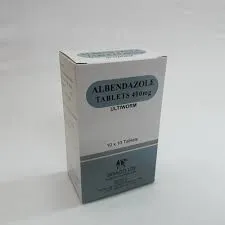- Afrikaans
- Albanian
- Amharic
- Arabic
- Armenian
- Azerbaijani
- Basque
- Belarusian
- Bengali
- Bosnian
- Bulgarian
- Catalan
- Cebuano
- Corsican
- Croatian
- Czech
- Danish
- Dutch
- English
- Esperanto
- Estonian
- Finnish
- French
- Frisian
- Galician
- Georgian
- German
- Greek
- Gujarati
- Haitian Creole
- hausa
- hawaiian
- Hebrew
- Hindi
- Miao
- Hungarian
- Icelandic
- igbo
- Indonesian
- irish
- Italian
- Japanese
- Javanese
- Kannada
- kazakh
- Khmer
- Rwandese
- Korean
- Kurdish
- Kyrgyz
- Lao
- Latin
- Latvian
- Lithuanian
- Luxembourgish
- Macedonian
- Malgashi
- Malay
- Malayalam
- Maltese
- Maori
- Marathi
- Mongolian
- Myanmar
- Nepali
- Norwegian
- Norwegian
- Occitan
- Pashto
- Persian
- Polish
- Portuguese
- Punjabi
- Romanian
- Russian
- Samoan
- Scottish Gaelic
- Serbian
- Sesotho
- Shona
- Sindhi
- Sinhala
- Slovak
- Slovenian
- Somali
- Spanish
- Sundanese
- Swahili
- Swedish
- Tagalog
- Tajik
- Tamil
- Tatar
- Telugu
- Thai
- Turkish
- Turkmen
- Ukrainian
- Urdu
- Uighur
- Uzbek
- Vietnamese
- Welsh
- Bantu
- Yiddish
- Yoruba
- Zulu
10 月 . 31, 2024 15:51 Back to list
Exploring the Benefits and Applications of Kitasamycin Tartrate in Medicine and Research
Kitasamycin tartrate is an essential compound often utilized in the domain of pharmaceuticals, particularly as an antibiotic. It is derived from the fermentation of specific strains of Streptomyces. Kitasamycin is primarily valued for its efficacy against a variety of bacterial infections, making it an important option for treating illnesses caused by both Gram-positive and some Gram-negative bacteria.
The history of kitasamycin traces back to the mid-20th century when it was discovered as part of a broader search for new antibiotics. Researchers were heavily invested in isolating substances that could combat resistant bacterial strains, which were becoming increasingly problematic. Kitasamycin stood out due to its unique chemical structure and mechanism of action, which allows it to interfere with bacterial protein synthesis.
One of the notable features of kitasamycin is its dual-mode of action. It works by binding to the ribosomal RNA of bacteria, ultimately inhibiting their ability to produce essential proteins needed for growth and survival. This makes kitasamycin a strong contender in the fight against infections, particularly in cases where other antibiotics may fall short due to resistance.
In addition to its antibacterial properties, kitasamycin has shown potential in treating conditions related to respiratory tract infections and certain dermatological disorders. Its broad-spectrum activity against bacteria such as Staphylococcus aureus and Streptococcus pneumoniae has made it a go-to choice for healthcare professionals in settings where rapid and effective treatment is paramount.
kitasamycin tartrate

As with any antibiotic, the use of kitasamycin tartrate must be approached with caution to minimize the development of drug resistance
. Prescribing practices that involve the appropriate dosage and duration of treatment are crucial to maintaining the efficacy of this antibiotic. Healthcare providers are encouraged to conduct thorough evaluations before initiating therapy, ensuring that kitasamycin is suitable for the specific type of infection being treated.Furthermore, research continues to explore the potential applications of kitasamycin beyond its established uses. Ongoing studies are investigating its effectiveness in treating various conditions, potentially expanding the therapeutic landscape for this antibiotic. The quest for new formulations and delivery methods could further enhance its clinical utility, making it an invaluable asset in modern medicine.
In summary, kitasamycin tartrate is a significant compound in the antibiotic arsenal, offering broad-spectrum antibacterial activity against a range of pathogens. Its discovery and subsequent use underscore the importance of continued research and development in the field of antibiotics. As we face the growing challenge of antibiotic resistance, compounds like kitasamycin will play a critical role in our efforts to combat infections and safeguard public health. As researchers delve deeper into its properties and applications, the future of kitasamycin remains promising in the evolving landscape of medical treatments.
-
The Power of Radix Isatidis Extract for Your Health and Wellness
NewsOct.29,2024
-
Neomycin Sulfate Soluble Powder: A Versatile Solution for Pet Health
NewsOct.29,2024
-
Lincomycin Hydrochloride Soluble Powder – The Essential Solution
NewsOct.29,2024
-
Garamycin Gentamicin Sulfate for Effective Infection Control
NewsOct.29,2024
-
Doxycycline Hyclate Soluble Powder: Your Antibiotic Needs
NewsOct.29,2024
-
Tilmicosin Premix: The Ultimate Solution for Poultry Health
NewsOct.29,2024













